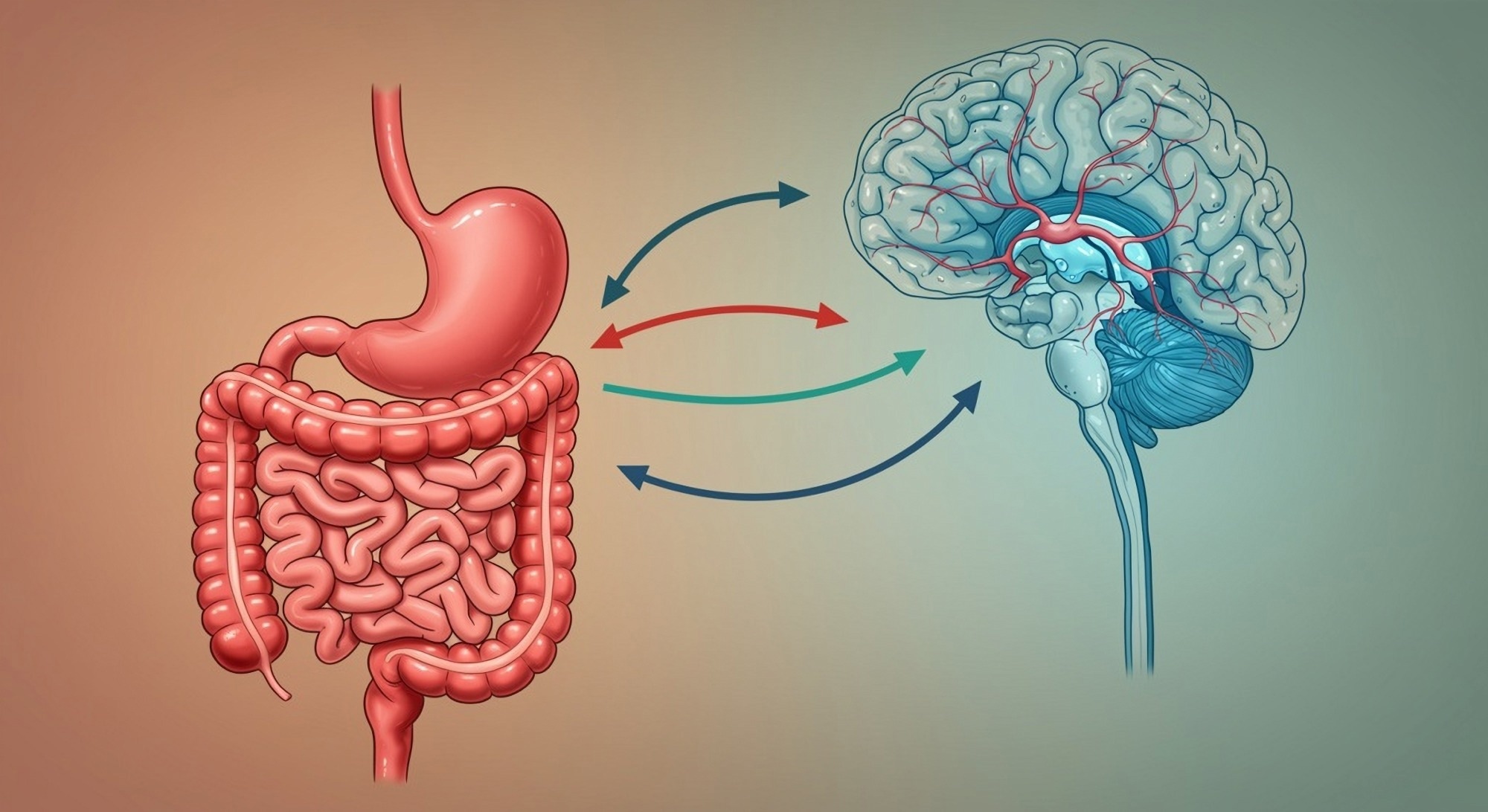How gut microbial imbalances may contribute to ASD severity and highlights potential therapies like probiotics and fecal microbiota transplantation to alleviate symptoms.
 Study: The Gut–Brain–Microbiota Connection and Its Role in Autism Spectrum Disorders. Image Credit: Shutterstock AI Image Generator / Shutterstock.com
Study: The Gut–Brain–Microbiota Connection and Its Role in Autism Spectrum Disorders. Image Credit: Shutterstock AI Image Generator / Shutterstock.com
In a recent study published in Nutrients, researchers evaluate the relationship between the gut microbiome and autism spectrum disorder (ASD).
ASD: Prevalence, symptoms and etiology
ASD is a group of complex neurodevelopmental disorders that are characterized by distinct patterns of repetitive, restricted behaviors and difficulties in social communication. Approximately 1% of the global population is affected by ASD, with males more likely to be diagnosed with this condition than females.
ASD likely arises due to a combination of genetic, epigenetic, and environmental factors, including immune dysregulation. For example, children with ASD often exhibit increased levels of pro-inflammatory cytokines, such as interleukin-6 (IL-6), tumor necrosis factor-alpha (TNF-α), and anti-inflammatory cytokines like IL-4 and IL-10.
Older parental age, birth complications that arise due to trauma, ischemia, and hypoexia, cesarean delivery, as well as the presence of maternal obesity and/or diabetes may also increase the risk of ASD in children.
The prevalence of GI symptoms in ASD
Individuals with ASD are at a greater risk of developing other health conditions, some of which include attention deficit hyperactivity disorder (ADHD), gastrointestinal (GI) disorders, anxiety disorders, epilepsy, and sleep disturbances than their non-ASD siblings. In fact, current estimates indicate that 74% of individuals diagnosed with ASD experience at least one comorbidity, with GI disorders most often reported in children with ASD.
These GI disorders may manifest as constipation, diarrhea, abdominal pain, and/or gastroesophageal reflux disease (GERD), with a prevalence of 9-91%. The severity of these disorders appears to be dose-dependent, with more severe GI symptoms occurring in the presence of more intense neuropsychiatric symptoms.
How does gut microbial dysbiosis influence ASD progression in children?
Within the GI tract, a diverse community of microorganisms, which are collectively referred to as gut microbiota, is crucial for maintaining physiological homeostasis. For example, some metabolic functions of the gut microbiota include the digestion of dietary fibers, production of short-chain fatty acids (SCFAs), maintaining the integrity of the intestinal barrier by facilitating the secretion of mucus, as well as releasing antimicrobial peptides and immunoglobulin A (IgA).
Gut microbial dysbiosis has been implicated in both GI and neuopsychiatric symptoms observed in ASD through various mechanisms, some of which include immune dysregulation, disrupted gut-brain communication, and increased intestinal permeability.
Children with autism often exhibit an increased abundance of Lactobacillus species, reduced Bacteroidetes/Firmicutes ratio, and marginal elevation in Desulfovibrio. Several studies have also reported alterations in Clostridium, Enterobacteriaceae, Verrucomicrobia, Fusobacteria, Escherichia coli, Prevotella, Akkermansia, and Faecalibacterium in this patient population.
Increased levels of the S100 calcium-binding protein beta subunit may also contribute to ASD development by enhancing neuroinflammation and facilitating synergistic interactions with pro-inflammatory cytokines. These metabolic disturbances have the potential to exacerbate ASD symptoms and affect nervous system function through impaired methylation and remethylating capacity.
Several hyper- and hypo-glutamine mechanisms have been associated with different stages of ASD. The excitatory glutamate pathway also appears to contribute to the etiopathogenesis of ASD through its role in the gut-brain axis and facilitating trans-synaptic signaling.
Targeting the microbiome to treat ASD
The development of avoidant/restrictive food intake disorder (ARFID) in ASD patients can arise from sensory processing difficulties, behavioral inflexibility, and anxiety, which leads to persistent nutritional deficiencies, and social challenges.
ARFID increases the risk of dysbiosis by disrupting microbial diversity and composition, which affects the gut-brain axis. Thus, microbiota-targeted therapies have the potential to improve both neurodevelopmental and behavioral outcomes in individuals with ASD. Although dietary interventions are considered a non-invasive strategy for managing ASD symptoms, widespread ARFID among this population is associated with significant challenges.
Existing evidence suggests that probiotics have the potential to modulate symptoms associated with ASD by restoring healthy gut microbiota. SCFA production from probiotics also reduces gut inflammation and strengthens the intestinal barrier.
Probiotics influence neurotransmitter synthesis, which is involved in mood regulation, social behavior, and cognitive function. Nevertheless, additional research is needed to validate preliminary evidence suggesting the positive effects of probiotic supplementation as a treatment for ASD.
Fecal microbiota transplantation (FMT) involves transferring healthy donor gut microbiota to a recipient with ASD to restore healthy microbial diversity. This strategy could alleviate GI symptoms associated with ASD, such as bloating, persistent constipation, or diarrhea. Thus, ASD patients who do not respond to conventional treatments may benefit from FMT with specific microbial species.
Conclusions
Gut microbial dysbiosis influences the severity of ASD symptoms through various mechanisms that affect the central nervous system. Although several interventions, such as dietary modifications and FMT, have the potential to restore this microbial imbalance and mitigate GI conditions and behavioral symptoms in ASD patients, the long-term effects and safety of these therapies remains unclear.
In the future, additional research is also needed to clarify whether maternal and early-life antibiotic exposure influences the risk of ASD.
Journal reference:
- Młynarska, E., Barszcz, E., Budny, E., et al. (2025) The Gut–Brain–Microbiota Connection and Its Role in Autism Spectrum Disorders. Nutrients 17(7); 1135. doi:10.3390/nu17071135